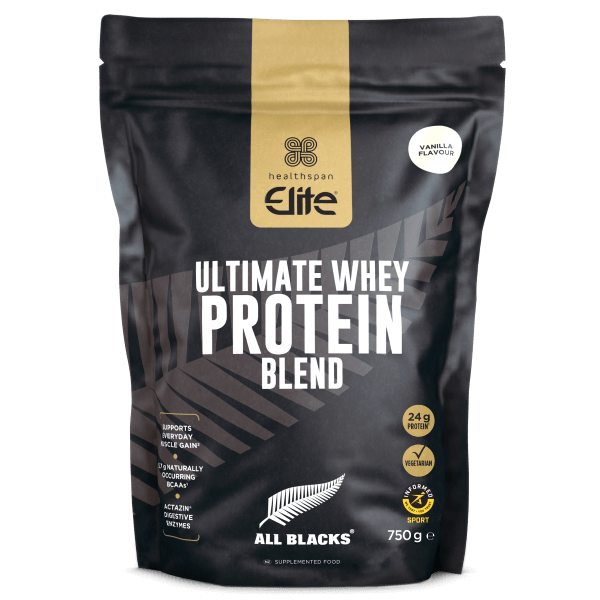Everyone should be able to relax over Christmas, but come January it may be a struggle to get back in shape, both when it comes to motivation and diet. Here's the expert view from nutritionist Rob Hobson.
🕒 5 min read
The festive season is laden with treats, alcohol and a lack of enthusiasm to move. Depending on how long you take off, it can mean unwanted weight gain and a drop in your fitness levels. Of course, this is the time of year you should be indulging with family and friends, but come January, you may be looking to get back on track.
It's essential to be realistic about what you want to achieve in January, especially if you've taken a prolonged period off training or are looking to start fresh in the New Year. Start slowly with your training and take a sensible approach to your diet; this way training and recovery sessions are fuelled appropriately, and you lose weight without sacrificing muscle mass.
January isn't an easy month for training, even for a dedicated sportsperson. Personal trainer Lucy Gornall shares her advice for getting back on track.
Eat a balanced diet
Your diet must supply you with the necessary nutrients to support your training and recovery needs while at the same time helping you to lose excess weight.
A balanced diet includes plenty of plant-based foods, including fruits, vegetables, nuts, seeds, beans, pulses and lentils. Carbohydrates should come as high-fibre foods such as brown rice, spelt or quinoa. At the same time, proteins should be lean and in their natural state, such as poultry, fish, tofu, Quorn, beans and pulses.
Alongside this, you should opt for healthy fats found in foods such as olive oil, avocado and oily fish, as well as a few servings of dairy or alternatives to help support the health of your bones.
Plan ahead
To help keep you on track, it's important to plan what you will eat for the week ahead. This also includes snacks and any meals you might need to prepare when away from home. Planning can also help keep your food bill down as you seek out seasonal foods and best buys.
Keep healthy snacks to hand, such as nuts, seeds, bananas or dried fruit. Protein shakes are also helpful as a recovery snack if you're not going straight home after your training session.
Eat little and often
Don't fall into the trap of skipping meals to lose weight, as this will not help with fuelling your sessions or recovery. You should try to still eat according to your training schedule. Try eating little and often to reduce your overall energy intake and focus on the timing of meals to get a good carbohydrate intake before training, alongside carbohydrate and protein post-training.
Reducing your energy intake should be done across the day by adjusting the portion size or composition of your meals, not by avoiding or skipping a meal.
Shift your macros
Cutting back on carbohydrates is the easiest way to adjust your energy intake. Try sticking to high-fibre carbohydrates and other foods that help to make you feel full, such as vegetables and lean proteins.
Time your carbohydrate intake with your sessions, so you have an adequate store of glycogen to fuel your training. This might take the form of a high-carbohydrate meal before bed for morning sessions or a carbohydrate-rich lunch for afternoon sessions.
Train low to burn fat
This method of periodised eating is becoming particularly popular among endurance athletes, as it helps the body adapt to how it uses different substrates for fuel. The technique involves training in a fasted state before breakfast after consuming your last meal between 8 and 10pm.
The body will use liver stores of glycogen overnight, so they will become depleted while the muscle stores remain intact. When you train the following morning, the muscles' glycogen stores become quickly depleted, and as there is little left in the liver the body becomes more attuned to increasing fat oxidation and using glycogen more efficiently.
Training low should only be done 1-2 times a week to low or medium intensity and for no longer than 90 minutes.
Supplements
If you do decide to cut down on your food intake, consider a multivitamin and mineral supplement to help bridge any gaps in your diet.
Protein shakes are a convenient way to ensure you have a recovery meal after training, especially if you have a busy day ahead of you after a training session. Protein shakes can also be used as a high-protein snack or breakfast meal replacement if you want to reduce your overall energy intake.
Those engaged in power sports such as weight training may find creatine useful to help them to push harder in the gym and build lean muscle mass.

Elite All Blacks Ultimate Whey Protein Blend
Protein powder co-created with the All Blacks
- 24g protein per serving to support muscle growth
- Added protease to break down protein for better absorption
- Available in vanilla, strawberry and chocolate. Low in sugar
Don't forget about sleep
Sleep has a vital role to play in your new year strategy to get back on track. During the festive season, it's easy to develop a disrupted sleep pattern as you attend parties, drink more alcohol and consume richer foods that can keep you awake.
Sleep is needed for the body to recover properly and prevent you from feeling daytime fatigue, which can disrupt your training. Research also suggests that those who sleep less are more likely to put on weight. A recent randomised trial of 80 overweight people published in the journal Jama Internal Medicine showed that extending sleep from 6.5 hours to 8.5 hours reduces daily energy intake by 270 calories.
With the right intention set for the new year, it will not take long to get your diet and training strategy back on track. The key to success is careful planning and a sensible approach to eating well.










